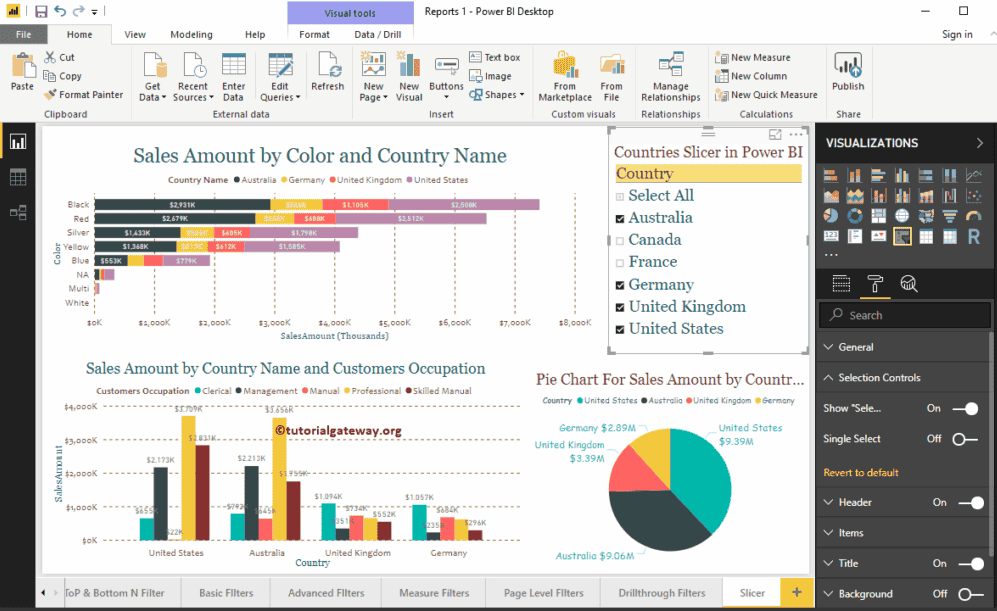Power BI Slicer is commonly used to add filters to the canvas or to display filters on the report canvas. Let me show you how to Create a Slicer in Power BI with an example.
For this Power BI Slicer demonstration, we will use the SQL Data Source we created in our previous article.
How to Create a Power BI Slicer
We will use this page to demonstrate the steps involved in creating a Power BI Slicer. This page contains Stacked Bar Chart, Clustered Column Chart, and Pie Chart. So, Please refer to Connect to SQL Server article to understand the Power BI Data Source.
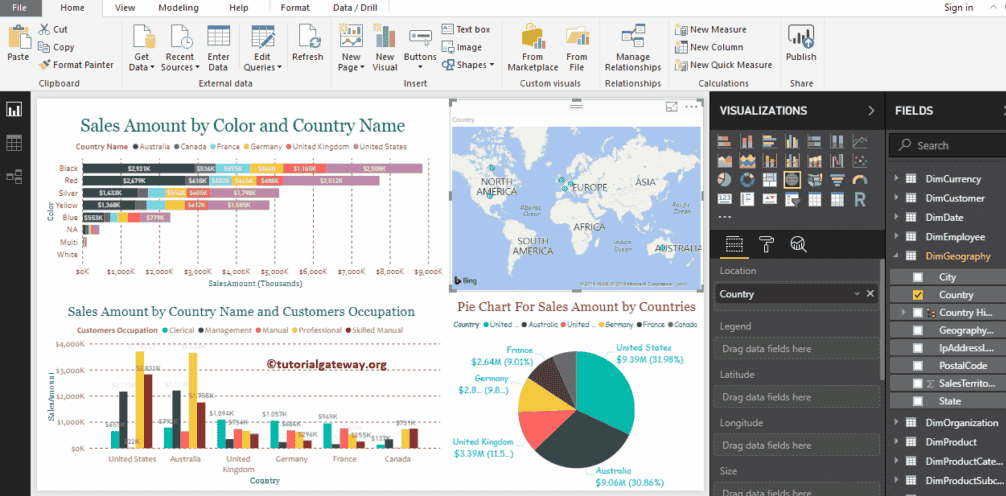
To create a Power BI Slicer, drag and Drop the fields you want to filter to the Canvas region. In this example, we want to use Country as the Filter for this report. So, let me drag the Country from the Geography table to the Canvas. It will automatically create a Map for you.
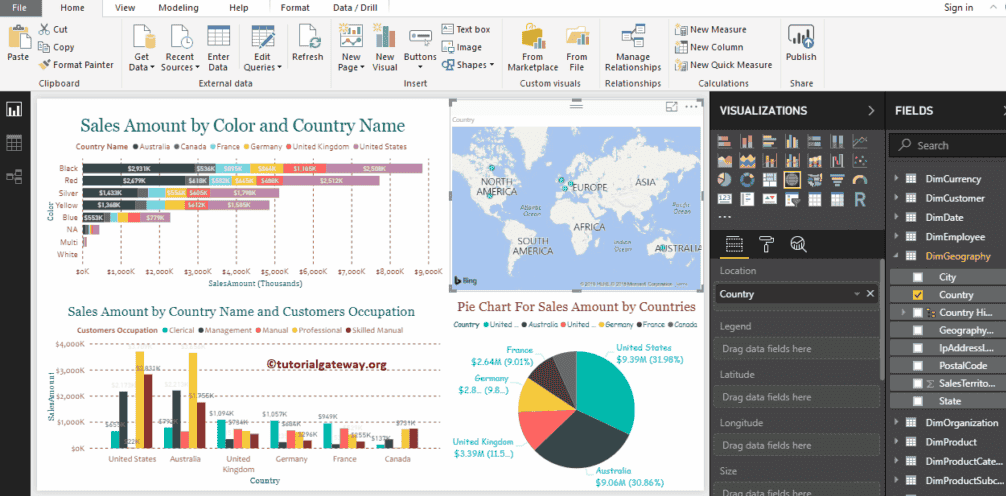
Click on the Slicer under the Visualization section to convert a Map. From the screenshot below, you can see the list of countries.
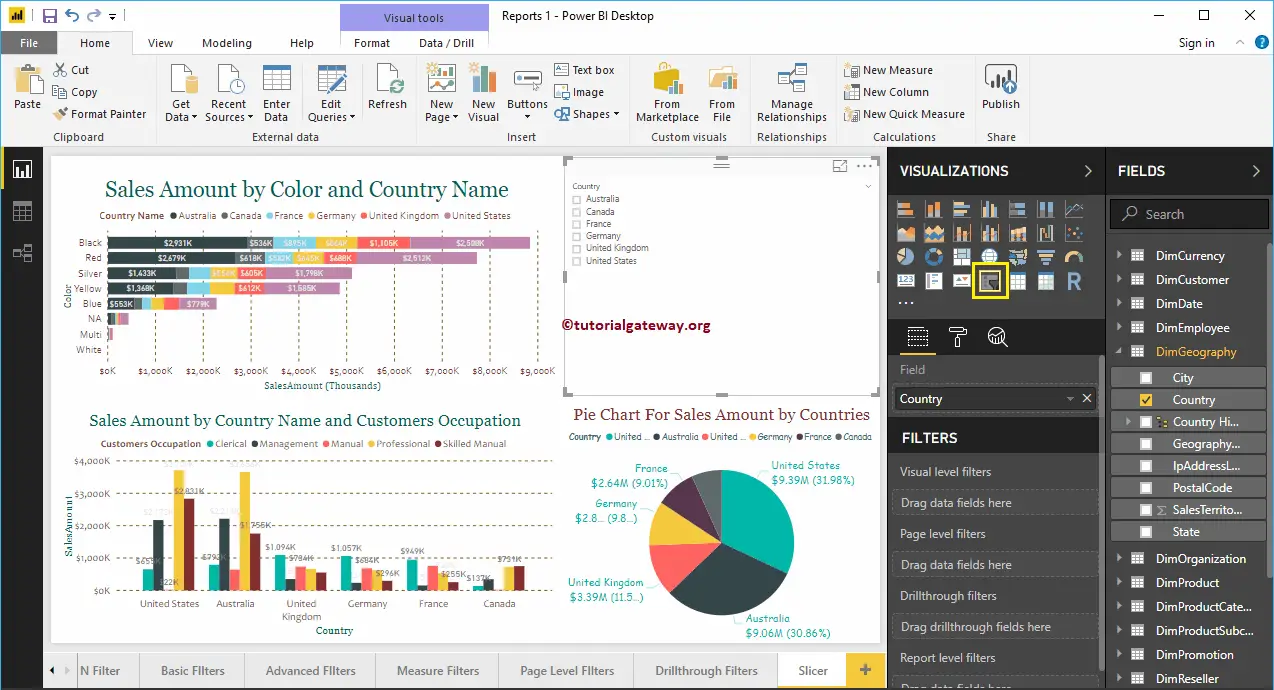
Create a Power BI Slicer using Drag and Drop Approach
First, click on the shown icon under the Visualization section. It automatically creates a slicer with dummy data, as shown below.
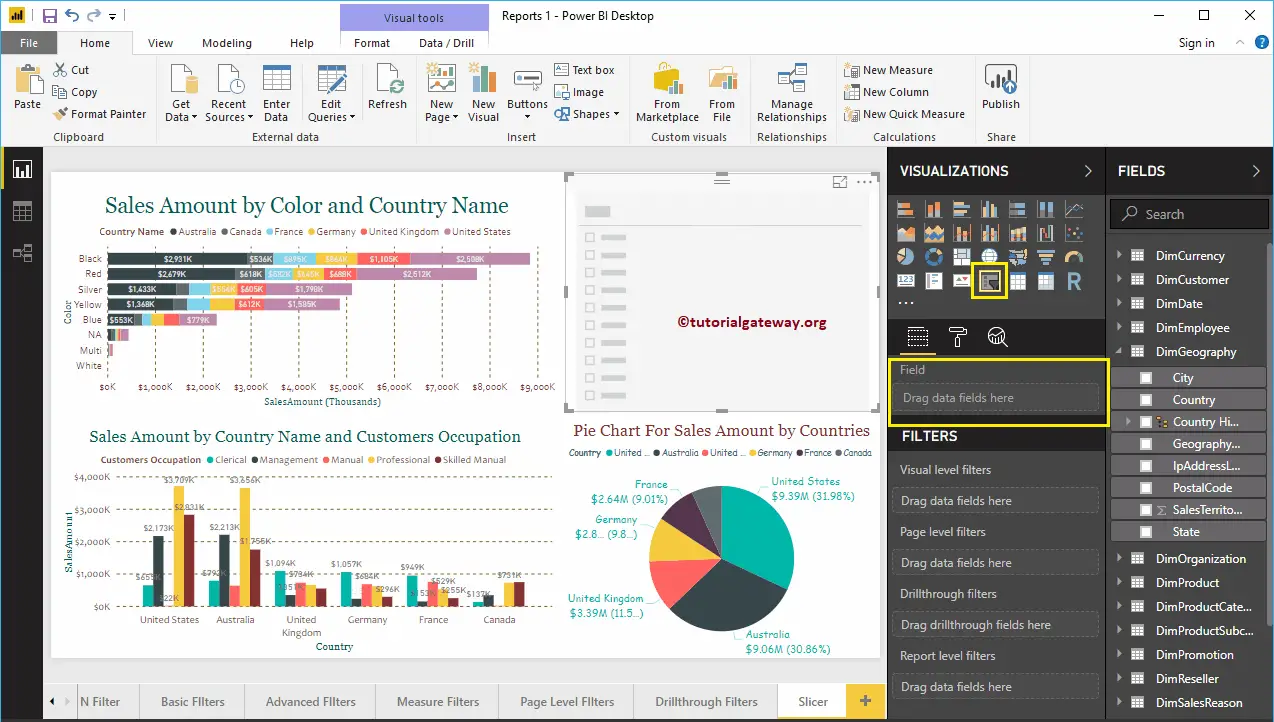
In order to add data to it, please drag and drop the filter field to the Fields section. Let me add Country to the Fields section.
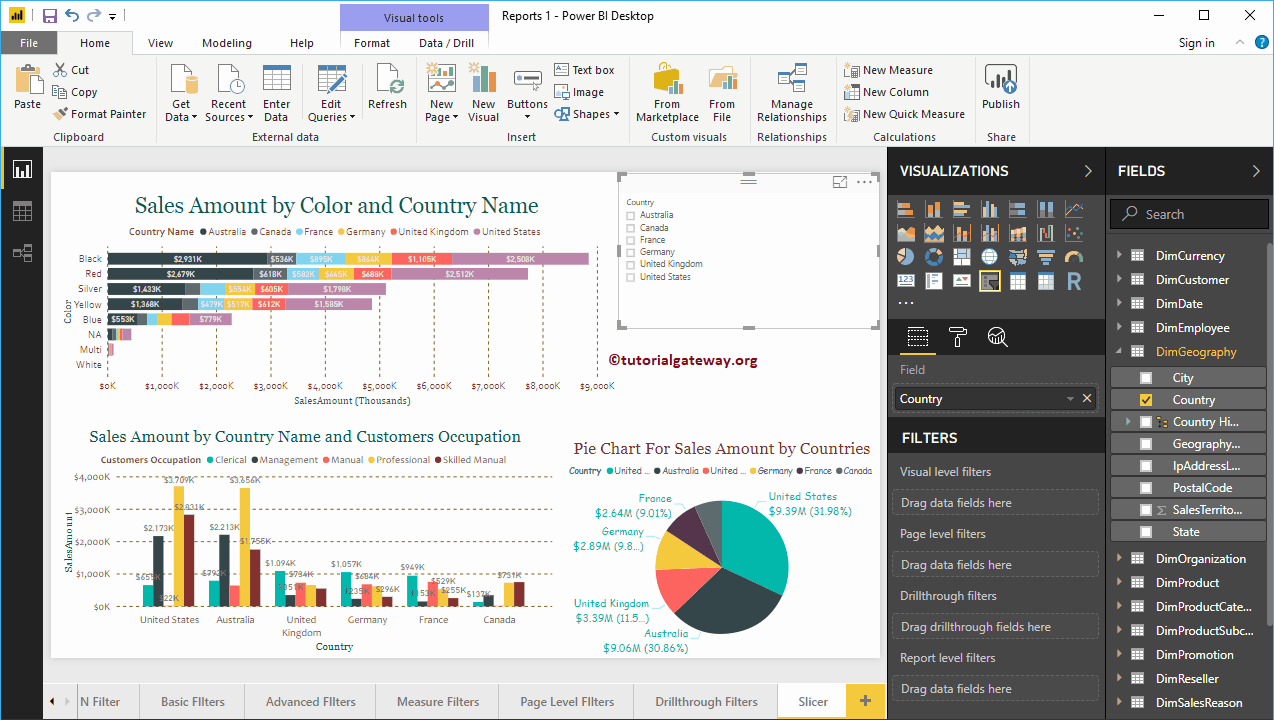
For the demo purpose, let me select the United States. From the screenshot below, you can see that the Stacked Column chart, Pie Chart, and Clustered Column charts display the Sales for the united states.
TIP: By default, you can only select One field (Country) at a time. You must toggle the Single Select option from On to Off in the format section for multiple selections.
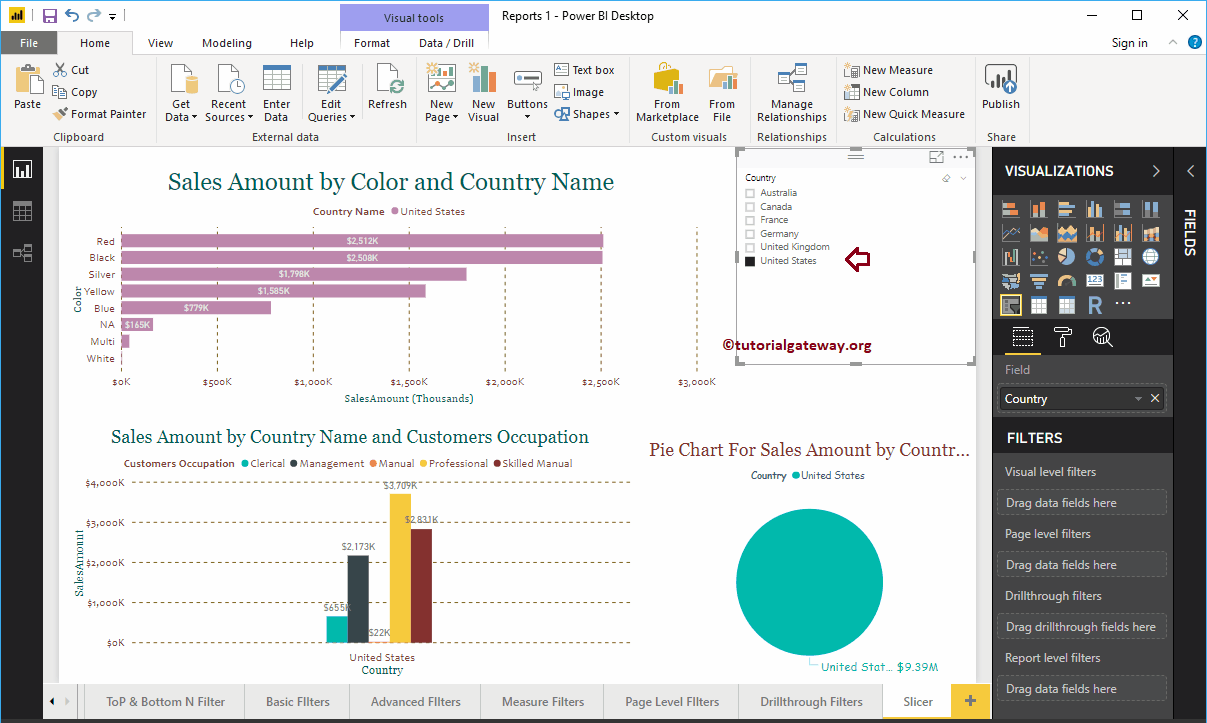
This time we selected the United Kingdom. As you can observe that the filter is applied to all charts.
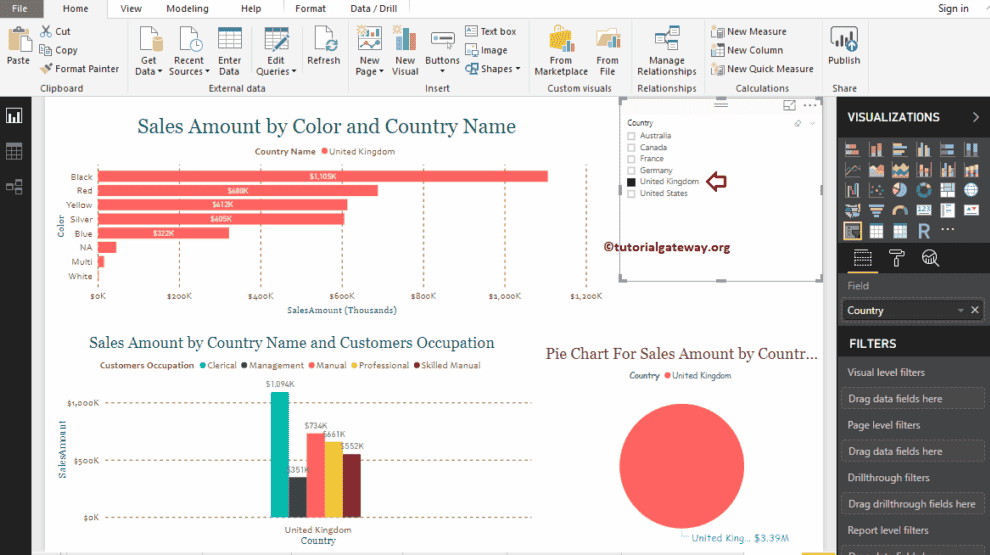
How to Format Slicer in Power BI?
Please click the Format button to see the list of formatting options available for this Country Slicer.
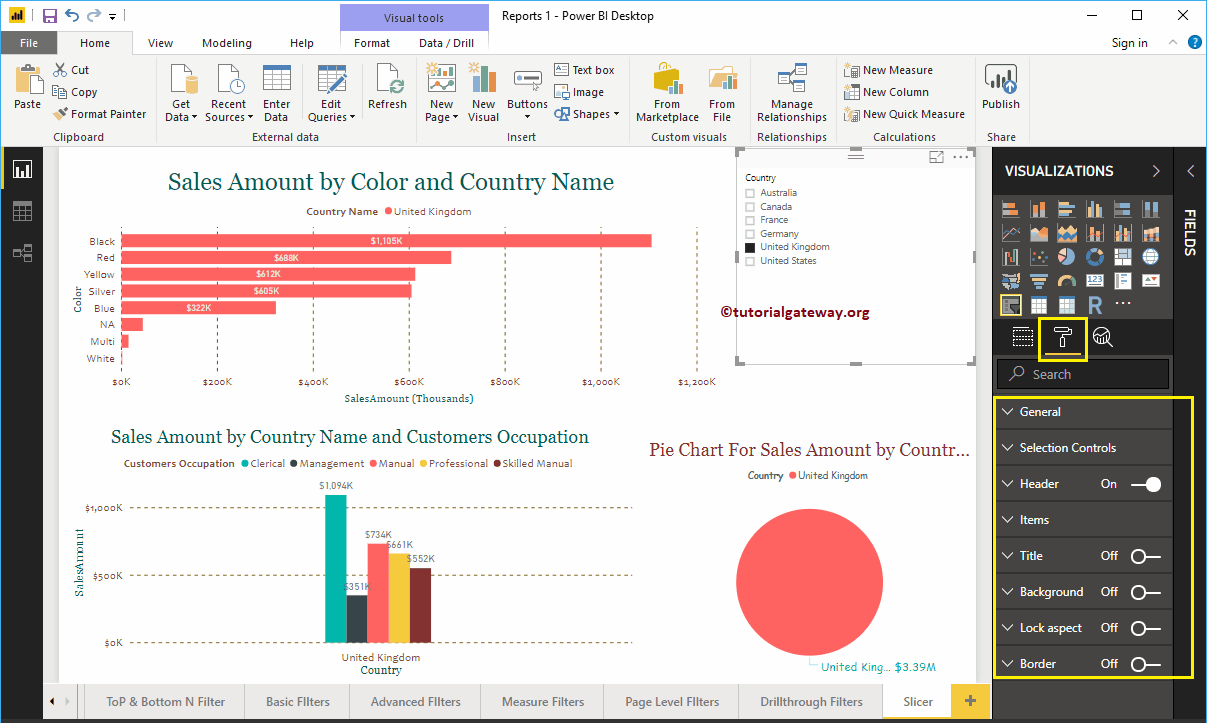
Format General Settings
Use this General Section to Change the Outline Weight, Outline Color, X, Y position, Width, and height.
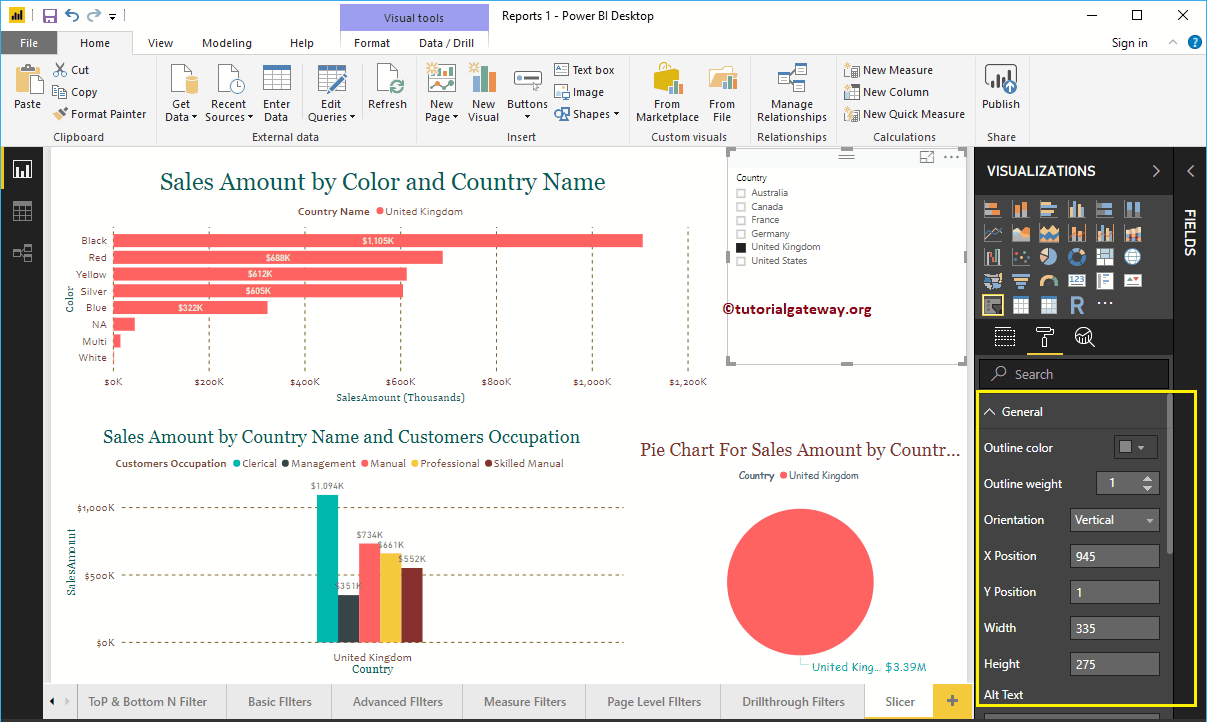
Format Header of a Slicer in Power BI
Here, we added Background Color and Outline to the bottom. Next, we changed the text size to 20 and the Font family to Georgia.
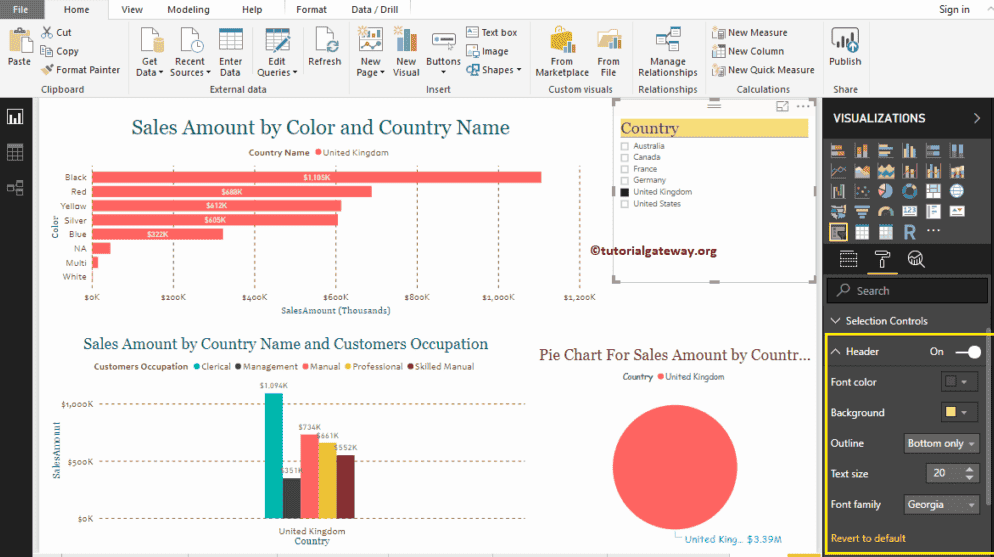
Format Items
We changed the Items (Countries) font color to Green, the text size to 20, and the Font family to Georgia.
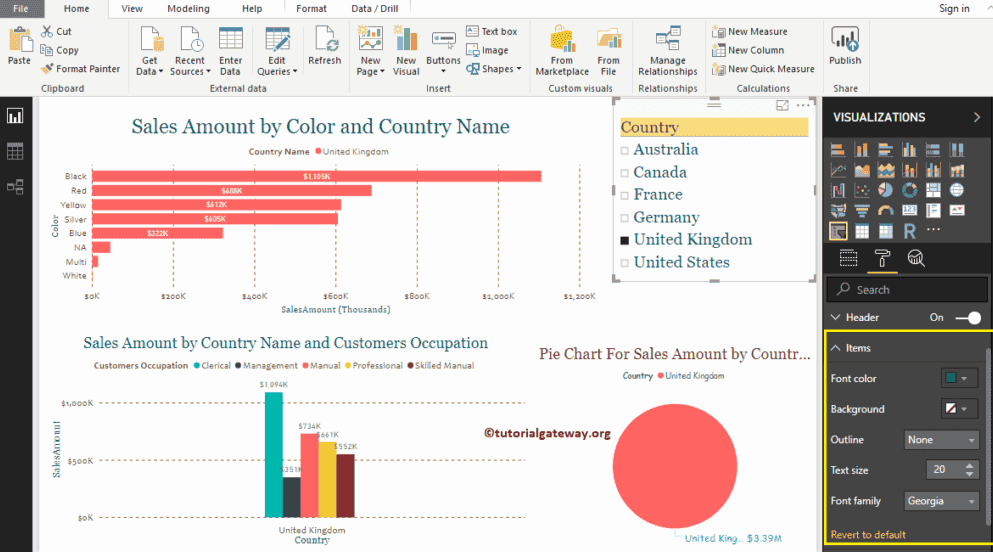
Format Slicer Title
You can add a title by toggling the Title option from Off to On. The Power BI screenshot below shows we added the Title Text as Countries Slicer. Next, change the Font Color to Red, Title Alignment to center, Font Family to Georgia, and the Text Size to 19.
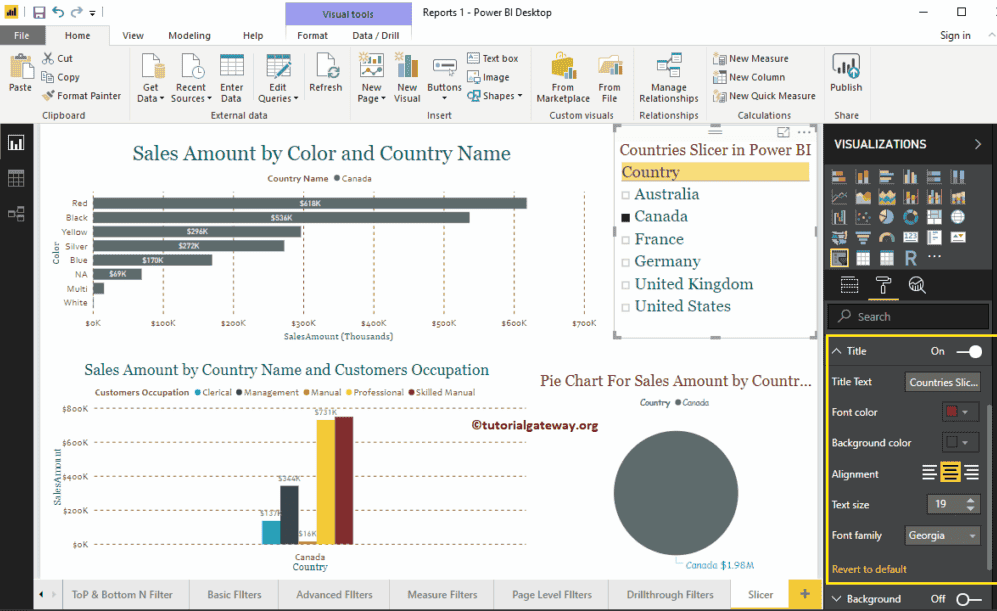
Format Power BI Slicer Background Color and Borders
You can add the Background color to this by toggling the Background option to On. For demonstration purposes, we added a random color with 66% transparency. Similarly, you can add Borders by toggling the Border option from Off to On.
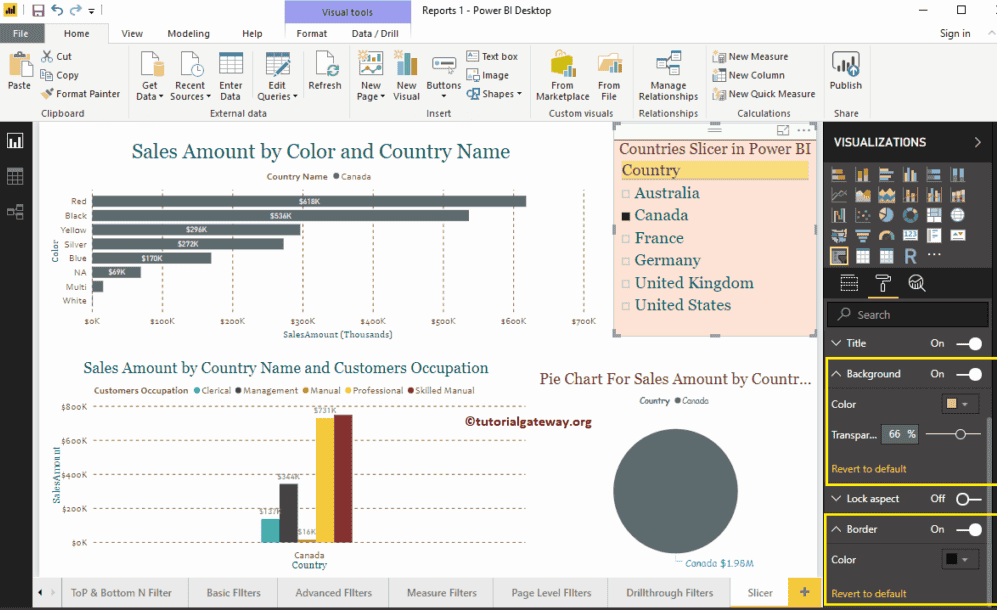
Format Slicer Selection Control
The selection controls section helps you to format the Power BI slicer selection control. This section has two properties:
- Show Select All: It adds the Select All option to the Slicer.
- Single Select: It restricts the selection to one item at a time.
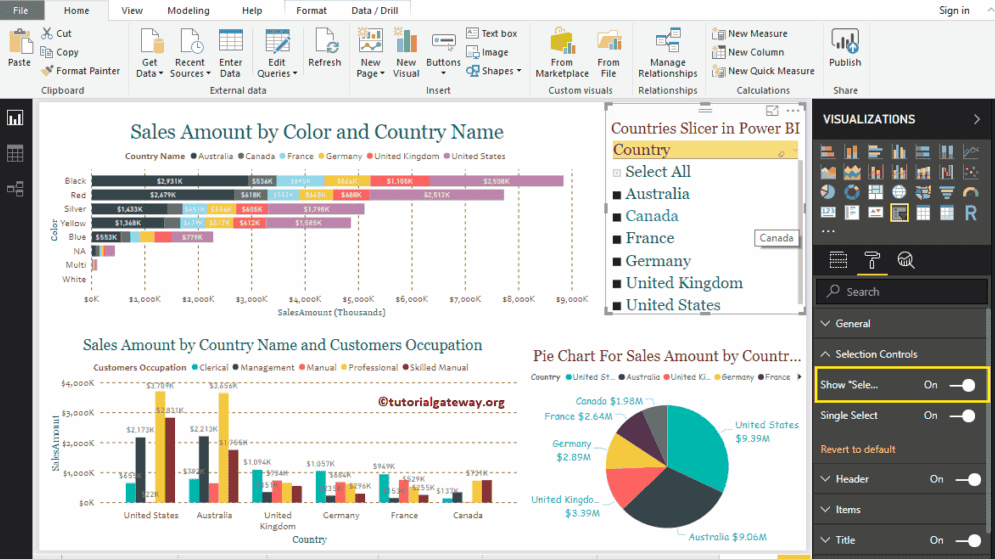
Let me toggle the Show Select All option from Off to On. Now, you can see Select All under the Country Slicer.
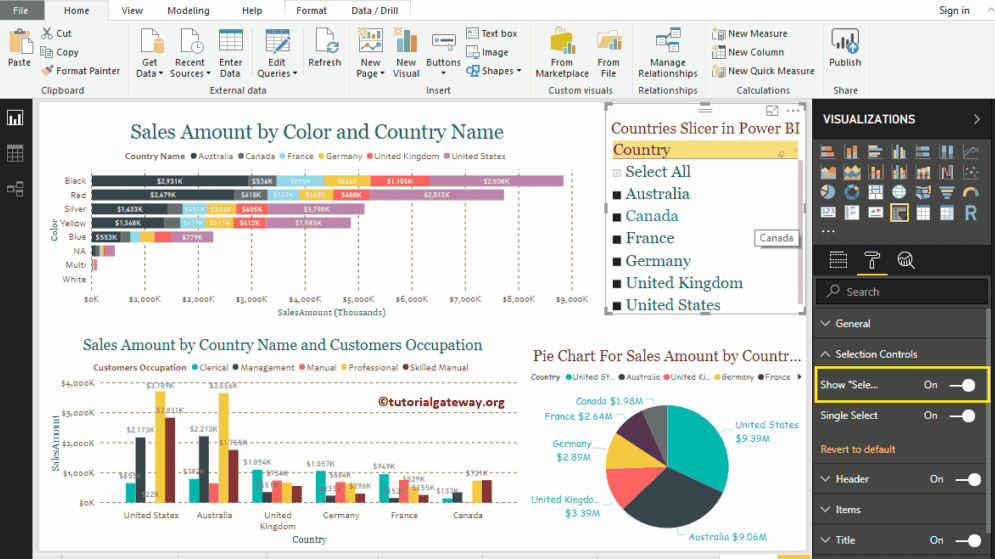
By toggling the Single Select option from On to Off, you can enable the slicer to select multiple fields.
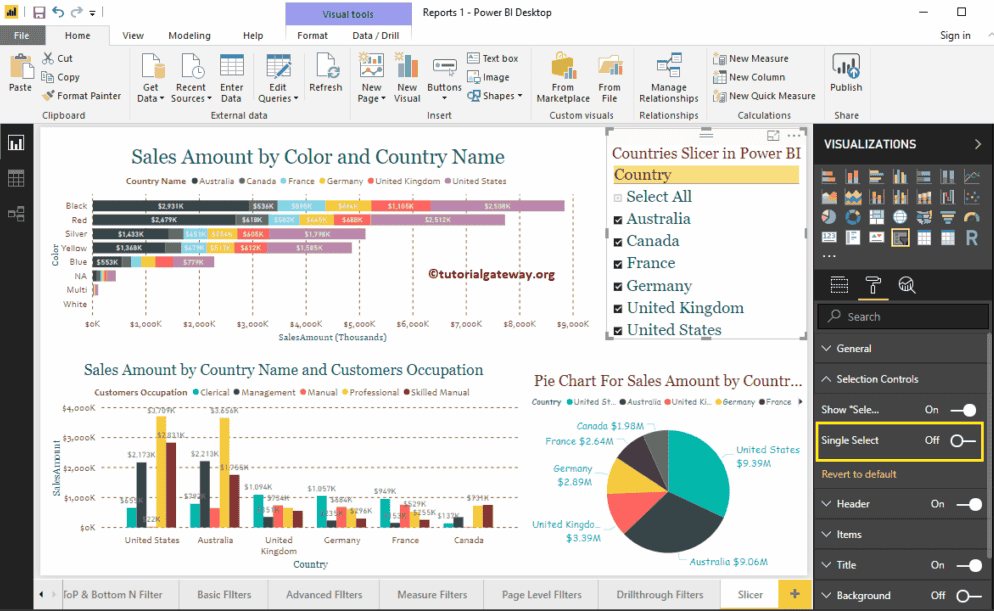
Let me select Australia, Germany, the United Kingdom, and the United States.
